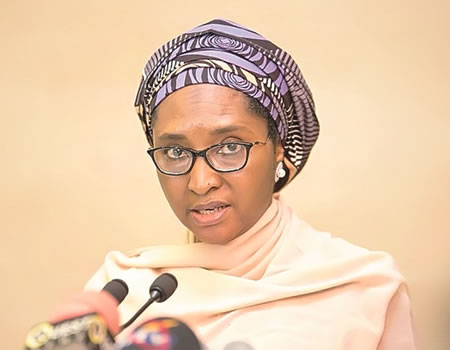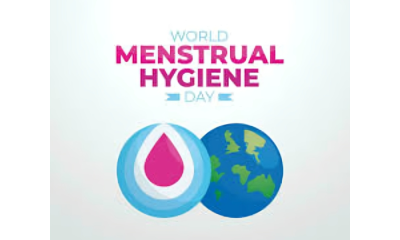Business News
Importers, Agents, Traders, Fault New Levy on Imported Vehicles, others.

By Dooyum Naadzenga, Abuja
Importers, freight forwarders and beverage traders have decried the fresh taxes placed on imported vehicles, alcoholic beverages and single use plastics by the Federal Government.
DAILY ASSET had reported that the Federal Government has introduced a new set of taxes on imported vehicles, alcoholic beverages and single use plastics.
It has also added to the list of items banned from being imported into the country.Under the new tax regime, which will come into effect next month, imported vehicles with 2000cc (2 litres) to 3999cc (3.9 litres) engine will pay an additional charge known as Import Adjustment Tax (IAT) levy of two per cent of the value of the vehicle while vehicles with 4000cc (4 litres) and above engines will attract IAT of four per cent of their value.
The new levy is in addition to the 35% import duty and 35% levy being paid by importers of vehicles.The Federal Government will also charge N75 per litre of beer, stout and wine imported into the country in 2023 and N100 per litre from 2024.
However, some importers and car dealers who spoke with DAILY ASSET on the development said the new taxes will increase the cost of goods in the market. Citing an example, Chief Operating Officer of Blaze Motors, Chinedu John, who spoke with our correspondent, said the price of a 2007 Camry, which was hitherto sold for N3 million, could rise to as much as N7 million when the new tax is implemented.
‘This new tax cannot take effect. They just announced it and when they see that it is not working, they will cancel it. Government is big but it is the people that make the government,” he said.
Another car dealer and Deputy Director at Auto Place, Emeka Owunnali, also condemned the new tax regime.
“The increment in the taxes is affecting importers in a great way. This is because the country is not working, inflation is increasing by the day, and people are finding it difficult to buy cars because they are more expensive now. This is also leading to increment in debts. For example, you take a loan of N100,000 with a 5% interest and suddenly, the interest rate shoots up to 15%. How do you want to pay back that loan? You will run into debt. Businesses will also crumble.
“Our economy is not stable and they are increasing taxes; it is not helping matters at all. For example, Toyota Land cruiser 2018 model, which used to be N30 million to N35 million is now about N50 million because of import tariffs. The tariffs are increasing and the dollar is also increasing thereby making everything so hard for Nigerians. A lot of businesses are folding up. Things are not working out as planned and that is why you see people running out of Nigeria to go and hustle,” Owunnali said.
The General Manager of Pleasant Automobile Limited, Ishak Adekunle said importers are facing challenges due to the charges on import vehicles and the depreciation of the naira.
“Jeep now goes for N53 million to N100 million or N120 million. Toyota Corolla 2021 which costs N18 million before now costs N30 million. The cost of tokunbo (fairly used vehicles) is almost the same now for new cars because tokunbo’s cost is based on its valued price abroad which determines its clearing cost. This is a great challenge to us. We are just trying to keep afloat in business,” Adekunle said.
A freight forwarder, Isah Christian, also expressed displeasure at the new additional tax on imported vehicles.
Christian said many importers, agents and auto dealers might be forced to close shop when the new tax is implemented.
“We will go on strike. However, we believe that the incoming government is not going to allow it because it is a government of the people but if it accepts it, then there will be no work. There will also be inflation in the prices of goods and services because I hear they want to attach the money of some agencies to the one we are already paying. They ought to meet and discuss with our union first and if the union accepts, then we do not have a choice than to accept,” another freight forwarder who identified himself as Alhaji Ajisafe said.
An alcoholic beverage dealer at Alaka market, Adeoti Tinuke, said increasing taxes has taken a toll on her business. She believes the new ad valorem tax on imported alcoholic beverages will negatively affect her business and impair the purchasing power of Nigerians.
Business News
Tinubu Congratulates Dangote on World Bank Appointment

By Jennifer Enuma, Abuja
President Bola Tinubu has congratulated Alhaji Aliko Dangote, the President of Dangote Group, on his appointment to the World Bank’s Private Sector Investment Lab, a body tasked with promoting investment and job creation in emerging economies.
In a statement by Special Adviser on Media and Publicity, Bayo Onanauga, the President described the appointment as apt, given Dangote’s rich private sector experience, strategic investments, and many employment opportunities created through his Dangote Group.
The Dangote Group became one of Africa’s leading conglomerates through innovation and continuous investment.
Dangote Group’s business interests span cement, fertiliser, salt, sugar, oil, and gas. However, the $20 billion Dangote Petroleum Refinery and Petrochemicals remains Africa’s most daring project and most significant single private investment.
“President Tinubu urges Dangote to bring to bear on the World Bank appointment his transformative ideas and initiatives to impact the emerging markets across the world fully” the statement said.

The World Bank announced Dangote’s appointment on Wednesday, as part of a broader expansion of its Private Sector Investment Lab. The lab now enters a new phase aimed at scaling up solutions to attract private capital and create jobs in the developing world.
The CEO of Bayer AG, Bill Anderson, the Chair of Bharti Enterprises, Sunil Bharti Mittal, and the President and CEO of Hyatt Hotels Corporation, Mark Hoplamazian, are on the Private Sector Investment Lab with Dangote.
The World Bank said the expanded membership brings together business leaders with proven track records in generating employment in developing economies, supporting the Bank’s focus on job creation as a central pillar of global development.
Business Analysis
Nigeria Customs Generates over N1.75trn Revenue in 2025
By Joel Oladele, Abuja
The Nigeria Customs Service (NSC) has generated an impressive N1,751,502,252,298.05 in revenue during the first quarter of 2025.
The Comptroller-General (CG) of the Service, Bashir Adeniyi, disclosed this yesterday, during a press briefing in Abuja.
According to Adeniyi, the achievement not only surpasses the quarterly target but also marks a substantial increase compared to the same period last year, reflecting the effectiveness of recent reforms and the dedication of customs officers across the nation.
“This first quarter of 2025 has seen our officers working tirelessly at borders and ports across the nation.
I’m proud to report we’ve made real progress on multiple fronts—from increasing revenue collections to intercepting dangerous shipments,” Adeniyi stated.He attributed this success to the reforms initiated under President Bola Tinubu’s administration and the guidance of the Honourable Minister of Finance and Coordinating Minister of the Economy, Olawale Edun.
The CG noted that the revenue collection for Q1 2025 exceeded the quarterly benchmark of N1,645,000,000,000.00 by N106.5 billion, achieving 106.47% of the target. This performance represents a remarkable 29.96% increase compared to the N1,347,705,251,658.31 collected in Q1 2024.
Adeniyi highlighted the month-by-month growth, noting that January’s collection of N647,880,245,243.67 surpassed its target by 18.12%, while February and March also showed positive trends.
“I’m pleased to report the Service’s revenue collection for Q1 2025 totaled N1,751,502,252,298.05.
“Against our annual target of N6,580,000,000,000.00, the first quarter’s proportional benchmark stood at N1,645,000,000,000.00. I’m proud to announce we’ve exceeded this target by N106.5 billion, achieving 106.47% of our quarterly projection. This outstanding performance represents a substantial 29.96% increase compared to the same period in 2024, where we collected N1,347,705,251,658.31.
“Our month-by-month analysis reveals even more encouraging details of this growth trajectory,” Adeniyi said.
In addition to revenue collection, Adeniyi said the NCS maintained robust anti-smuggling operations, recording 298 seizures with a total Duty Paid Value (DPV) of ₦7,698,557,347.67.
He stated that rice was the most seized commodity, with 135,474 bags intercepted, followed by petroleum products and narcotics.
“From rice to wildlife, these seizures show our targeted approach,” Adeniyi remarked, noting the NCS’s commitment to combating smuggling and protecting national revenue.
Adeniyi also highlighted key initiatives, including the expansion of the B’Odogwu customs clearance platform and the launch of the Authorized Economic Operators Programme, which aims to streamline processes for compliant businesses. The NCS’s Corporate Social Responsibility Programme, “Customs Cares,” was also launched, focusing on education, health, and environmental sustainability.
Despite these achievements, the CG noted that the NCS faced challenges, including exchange rate volatility and non-compliance issues. Adeniyi acknowledged the need for ongoing adaptation and collaboration with stakeholders to address these challenges effectively.
Looking ahead, the NCS aims to continue its modernization efforts and enhance service delivery, ensuring that it remains a critical institution in Nigeria’s economic and security landscape.
“Results speak louder than plans; faster clearances through B’Odogwu, trusted traders in the AEO program, and measurable food price relief from our exemptions. We’ll keep scaling what works,” he concluded.
BUSINESS
NSIA Net Assets Hit N4.35trn in 2024
By Tony Obiechina Abuja
The Nigeria Sovereign Investment Authority (NSIA) yesterday disclosed that its net assets grew from N156bn in 2013 to N4.35 trillion in 2024.
Similarly, the Authority has remained profitable for 12 consecutive years, leading to cumulative retained earnings of N3.
74 trillion in 2024.Managing Director and Chief Executive Officer of NSIA, Aminu Umar- Sadiq made these disclosures at a media engagement in Abuja, highlighting its audited financial results for the 2024 fiscal year.
According to him, the results underscored the resilience of the authority’s investment strategy and the strength of its earnings, driven by a well-diversified revenue base and robust risk management practices, despite a challenging global macroeconomic and geopolitical environment.
Total operating profits, excluding share of profits from associates and Joint Venture (JV) entities, increased from N1.17 trillion in 2023 to N1.86 trillion in 2024, driven by the strong performance of
NSIA’s diversified investment portfolio, infrastructure assets, gains from foreign exchange movements, and derivative valuations.
In addition, Total Comprehensive Income (TCI), inclusive of share of profits from associates and JV entities, reached N1.89 trillion in 2024, reflecting a 59 per cent increase from N1.18 trillion in 2023.
Core TCI (excluding foreign exchange and derivative valuation gains) rose by 148 per cent to N407.9 billion in 2024 compared to N164.7 billion in 2023, supported by robust returns on financial assets measured at fair value through profit and loss, including collateralised securities, private equity, hedge funds, and Exchange-Traded Funds (ETFs).
Umar-Sadiq said the authority’s outstanding financial performance in 2024 reflected the “strength of our strategic vision, disciplined execution and unwavering commitment to sustainable socio-economic advancement.”
He said, “By leveraging innovation, strategic partnerships and sound risk management, we have not only delivered strong returns but also created value for our stakeholders
“As we move forward, we remain focused on driving economic transformation, expanding opportunities, scaling transformative impact and ensuring long-term prosperity for current and future generations of Nigerians.”
The CEO reaffirmed the authority’s commitment to managing the country’s SWF, and delivering the mandates enshrined in the NSIA Act.
He said NSIA remained poised to continually create long-term value for its stakeholders by delivering excellent risk-adjusted financial results, developing a healthy and well-diversified portfolio of assets and large-scale infrastructure projects, and enhancing the desired social outcomes.
He noted that NSIA was committed to its mandate of prudent management and investment of Nigeria’s sovereign wealth.
“In adherence to its Establishment Act, NSIA prioritises transparency, disclosure, and effective communication with all stakeholders and counterparties,” he said.
He pointed out that in the year under review, a new board, led by Olusegun Ogunsanya as Chairman, was appointed by President Bola Tinubu, in accordance with the provisions of the NSIA Act.
The new board will provide strategic direction and oversight, in addition to playing a pivotal role in critical decision making.
He remarked that under the guidance of the Board, the Authority will retain focus on its primary mandate of creating shared value for all stakeholders based on its continued adoption of corporate governance practices.
“NSIA prides itself an investment institution of the federation established to manage funds in excess of budgeted oil revenues and its mission is to play a pivotal role in driving sustained economic development for the benefit of all Nigerians through building a savings base for the Nigerian people, enhancing the development of the county’s infrastructure, and providing stabilisation support in times of economic misadventure,” he added.






























